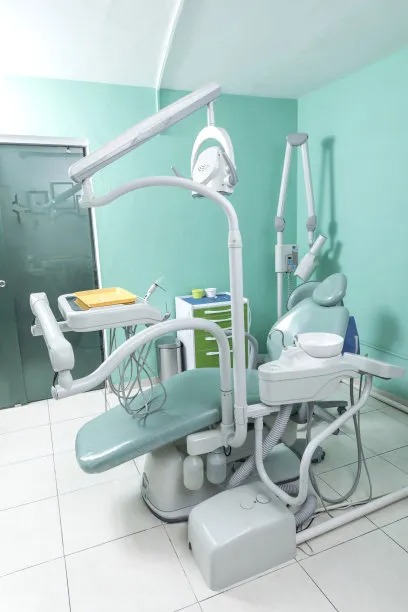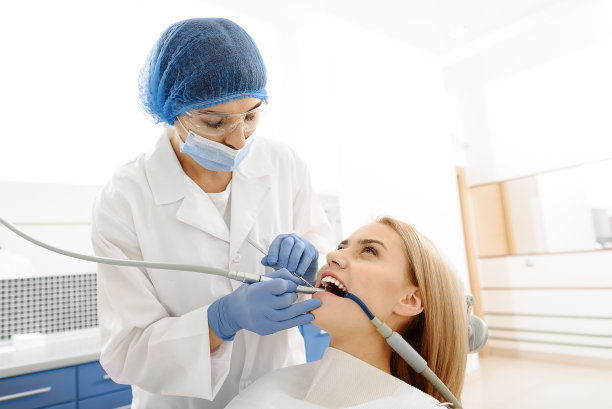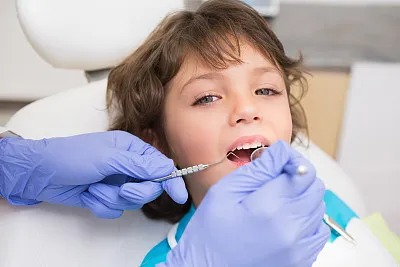Summary: Receiving a dental filling is a common procedure aimed at restoring teeth affected by decay. However, to ensure optimal oral health, certain precautions must be taken both before and after the filling is applied. This article outlines essential steps, including preparation strategies, post-treatment care, dietary recommendations, and maintaining long-term oral hygiene. By adhering to these guidelines, patients can maximize the effectiveness of their dental filling, reduce the likelihood of complications, and ensure their overall oral health remains intact.
1. Essential Preparation Strategies Before the Procedure

Before receiving a dental filling, it is crucial to prepare adequately both mentally and physically. Knowing what to expect during the procedure can significantly reduce anxiety and facilitate a smoother experience. Understanding the process, including anesthesia, the filling material options, and the duration of the appointment helps in preparing oneself mentally.
Another essential precaution is to communicate openly with your dentist about any health conditions, allergies, or medications you are currently taking. This information is critical to avoid any adverse reactions during treatment and to choose the appropriate materials for your filling.
Finally, consider arranging transport if necessary, especially if you will receive sedation or anesthesia. Having a friend or family member to drive you home can help reduce stress and ensure your safety after the procedure.
2. Understanding Post-Treatment Care Guidelines
Once the filling is placed, following post-treatment care guidelines becomes paramount. Initially, its advisable to avoid chewing on the side of the mouth where the filling was performed for at least a few hours while the anesthetic wears off. This precaution helps prevent accidental biting of the cheek or tongue, which can lead to unnecessary injury.
Additionally, maintaining sensitivity awareness is essential. Some patients may experience discomfort or sensitivity to temperature changes after getting a filling. If you encounter persistent pain or sensitivity beyond a few days, it鈥檚 crucial to contact your dentist as this may indicate an issue with the filling.
Furthermore, following a proper dental care routine of brushing twice a day and flossing daily around the filled tooth area will support the longevity of your filling. Ensuring that your filling remains clean will help in avoiding further decay around the filling material.
3. Dietary Recommendations for Optimal Recovery
Dietary choices play a significant role in the recovery process after receiving a dental filling. Initially, it鈥檚 advisable to stick to soft foods that do not require chewing, such as yogurt, smoothies, and mashed potatoes. This approach helps to prevent irritation or damage to the newly placed filling.
Stay away from hot or cold beverages shortly after your filling, as they may stimulate sensitivity in the treated tooth. Gradually reintroducing foods should be done while observing how your tooth reacts during the healing process.
In the long term, limiting sugary snacks and beverages is essential for maintaining both your fillings and overall oral health. Consuming a balanced diet rich in vitamins and minerals can enhance oral health and support stronger teeth, thereby prolonging the life of your dental fillings.
4. Maintaining Long-Term Oral Hygiene Practices
After the initial recovery from the filling procedure, maintaining an effective oral hygiene routine is vital for preventing decay and gum disease. Regular dental check-ups at least every six months can help monitor the condition of your fillings and identify any potential issues before they escalate.
Incorporating fluoride toothpaste and mouth rinses can strengthen tooth enamel, which is particularly beneficial for filled teeth. Keeping the filled area clean with proper brushing techniques and flossing can help avoid future cavities.
Moreover, adopting healthy lifestyle changes such as quitting smoking and reducing alcohol consumption can improve your overall oral health. These practices can prevent gum disease and ensure that your dental fillings last longer.
Summary:
In summary, taking essential precautions before and after receiving a dental filling is crucial for optimal oral health. By preparing adequately, following post-treatment care guidelines, adjusting dietary habits, and maintaining rigorous oral hygiene practices, patients can enhance the effectiveness of their dental fillings and avoid potential complications.
This article is compiled by Vickong Dental and the content is for reference only.
Vickong Dental
Vickong Dental is a large medical group established in Hong Kong in 2008 by professors from well-known medical universities in Guangdong and Hong Kong, as well as medical doctors from key national '985' universities (including Master's supervisors and senior professors). The chain of branches brings together expert dentists with PhDs and Master's degrees from Hong Kong and Mainland China, committed to providing high-quality dental treatment.
"Vickong Dental Practices the University Motto of 'Healing and Serving Society,' with a Stable Operation for Sixteen Years. It Has Been honored with Hong Kong Enterprise Leaders's Choice,' and is a Global Trusted Implant Center for the Nobel Implant System. Recommended by Hong Kong Metro Broadcast and Guangdong Television, it Serves Customers from Over Thirty Countries and Regions, Gaining the Trust and Favor of Citizens from the Guangdong-Hong Kong-Macau Greater Bay Area and Surrounding Cities.

Thousands of customers' unanimous praise
The most recognized and highly recommended dental service by customers in the Guangdong-Hong Kong-Macau Greater Bay Area
We Ensure You Receive Detailed Care and Attention Here
Hong Kong standards, Shenzhen prices, Your Trusted English-speaking dentists

Vickong Dental Medical-Grade Instrument Disinfection Process
Vickong Dental Medical-Grade Instrument Disinfection Process

Vickong Dental Chain: A Warm and Comfortable Environment for Treatment






Appointment Hours

Q&A
Why choose Vickong Dental?
Vickong Dental practices the university motto 「Medicine to Benefit Society」, with each branch bringing together highly qualified dentists with doctoral and master’s degrees from Hong Kong and the Mainland, and has maintained seventeen years of steady operation。Recipient of 「2024 Hong Kong Enterprise Leaders Brand」, 「2025 Hong Kong Enterprise Leaders Brand」, a Nobel Biocare Global Trusted Implant Center, and a brand recommended by Metro Radio Hong Kong and Guangdong TV。
To date, we have served customers from more than thirty countries and regions,earning exceptionally high word-of-mouth recognition and trusted recommendations from residents across the Guangdong-Hong Kong-Macao Greater Bay Area and surrounding cities
We have eight major branches in Zhuhai、Shenzhen,and a consultation and service assurance center in Hong Kong,so you can book a free consultation at any time for any questions,which is very reassuring.
If I do not accept the quotation after the CT scan, will I be charged??
No! As long as the actual treatment has not started, you will not be charged any fees.
Will there be any additional charges during the treatment process?
No, there won’t be any additional charges. Before treatment begins, we will clearly explain the treatment plan and its corresponding fees. Only after the patient agrees and signs the consent form will we proceed with the dental service.
Can I pay in Hong Kong dollars?
Yes. Vickong Dental accepts payment in Hong Kong dollars. The amount will be converted based on the exchange rate of the day, and the applicable rate will be clearly communicated to you in advance.
Can I reschedule my appointment at any time?
Yes. Please contact us via **WeChat** or **WhatsApp** as early as possible, providing your original appointment time and details, along with your preferred new date and time slot for rescheduling.













